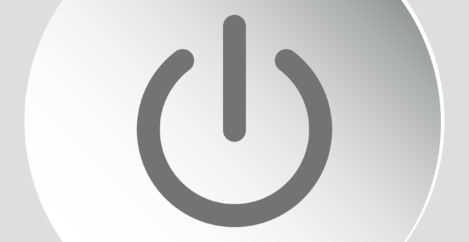July 30, 2020
People know that restricting screen time at work would benefit their wellbeing
 In a new survey of 4,000 employees in the UK, the US, Singapore and the UAE, three quarters of office workers say restricting screen time would benefit their mental and physical wellbeing. The survey has been published in a new report, The digital health dilemma: Is technology keeping workers healthy or making them ill? from benefits provider, Aetna International, in a bid to uncover how modern workplace technology and digital tools have impacted employee wellbeing.
In a new survey of 4,000 employees in the UK, the US, Singapore and the UAE, three quarters of office workers say restricting screen time would benefit their mental and physical wellbeing. The survey has been published in a new report, The digital health dilemma: Is technology keeping workers healthy or making them ill? from benefits provider, Aetna International, in a bid to uncover how modern workplace technology and digital tools have impacted employee wellbeing.
With more employees currently working from home due to the Covid-19 pandemic, workers are now more reliant on technology than ever before. The report explores how the use of technology was impacting employee wellbeing before the pandemic began.
The majority of employees feel that sitting at their computer for long durations have hindered their physical health:
- 70 percent of employees agree that they would exercise more if they spent less time at their PC
- 76 percent of employees feel that reduced or restricted out of hours technology use would help them manage their physical health better if provided by their employer
Adding to this, the majority of employees from around the world agreed that the overuse of technology in the workplace has had negative effects on their mental health:
- 75 percent agree that restricting the use of screen time in the office would help them to better manage their mental health
- 56 percent said that the overuse of communication platforms and internal emails increases their stress levels
Whilst digital advancements have made working from home an easy adjustment for businesses looking to provide their employees with more flexibility, with it has come the pressure to stay ‘switched on’ during the evenings, weekends and even on vacation. The report claims that 65 percent of employees check their phone for work-related messages at the weekend and 64 percent even check their phone for work-related messages whilst on holiday.
Additionally, the pressure to stay ‘switched on’ forces 64 percent of employees check their phone for work-related messages before they go to sleep and a further 70 percent check first thing in the morning, despite 66 percent of them admit that checking their phone for work-related messages can make them feel stressed.
The survey also claims that 64 percent of employees would support a workplace policy to prevent technology overload, helping them to structure their time and limit its use both within and outside of working hours. Despite this, less than half of employers provide such guidance, leaving employees to struggle with balancing their usage.
For many, working from home offers more opportunity to take better care of their health and wellbeing:
- 73 percent of respondents agreed that they are able to find more time to look after their physical health when they work from home
- 77 percent agree that more opportunities to work from home would help them improve their mental health
- 70 percent feel less stressed about their work when they work remotely
Despite this, employees in the UK are the least likely to feel the benefits of remote working with 32 percent agreeing that working from home makes them feel more stressed compared to the 19 percent regional average. Just 66 percent agreed that working from home allows them to find more time to look after their physical health compared to 78 percent in the UAE.
Image by OpenClipart-Vectors













